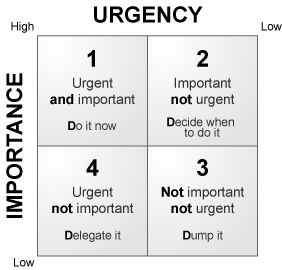Invest Your Life—Don’t Just Spend It!
 “Life is like a coin. You can spend it any way you wish, but you only spend it once.”
“Life is like a coin. You can spend it any way you wish, but you only spend it once.”
By Lillian Dickson, independent missionary, author, public speaker
After I broke my neck in a car accident and was forced to slow down to a crawl during my recovery, I finally learned what it meant to “Be still and know that I am God.” (Psalm 46:10 NLT) Contrary to my preconceived ideas about being still, I found that I really liked it; and I made a commitment to continue my lengthy quiet times with the Lord when I recovered. After reading the quote above from Lillian Dickson, I really wrestled with the whole issue of investing my life rather than just spending it. I think a brush with death causes us to rethink our values and our lives.
With my decision to give up my workaholic ways and carve out more time to spend with the Lord, the reality of my lifestyle gradually hit home. I was not using my time wisely! My days were unfocused and fragmented. I spent too much time in needless activities. I wasted too many hours on television and the computer.
Another dilemma: For years I had felt called to write. How could I rearrange my time to carve our several hours a day to listen to God and to write what I believed to be his responses? For someone constantly on the go, this would not be easy.
As I wrestled with the issue of using my time more wisely, a tool developed by Stephen Covey, author of Seven Habits of Highly Effective People, came to mind. Covey divided tasks into four categories based on importance and urgency. He challenged his readers to evaluate where they spent their time.

I realized instantly that I spend an enormous amount of time in the bottom two quadrants, some time in the top left, and very little in the top right. My writing was a top priority—important but not urgent. I needed to carve out time to do it—and stick with my plan. I needed to dump time wasters, ask others for help with the urgent but not important, stop procrastinating, and decide when I was going to do the important but not urgent—my writing.
During my search for answers, Rick Grubbs, a traveling evangelist and creator of Life Changing Seminars, came to our church and shared some ideas for time management. One question he suggested we ask ourselves stuck in my mind:
- What does God want me to do right now? Who needs my ministry today—a call, a visit, a card, a prayer? What can I do to eliminate the unimportant and useless things in my life so that I can spend more time on the important? What can I do today to move my important projects like my writing along—to break down big, overwhelming tasks into small “bites” so that I can “eat the elephant one bite at a time?” I began to see that it is better to spend a few minutes each day on the important than to waste that time on the insignificant.
A second question emerged that I believe helps greatly in clarifying the important:
- What would Jesus do? In the 90’s people sported bracelets and t-shirts asking this question. While the trinkets are dated, the question is not. Jesus spent his time in Quadrant 2—important and not urgent. He never hurried. He spent time—lots of it—in prayer. He delegated the urgent but less important to his disciples while He concentrated his time on the lost and hurting.
Finally, I added a third question:
- How can God be glorified in my current situation? What does he want me to do or say to point the world to HIM? What sacrifices do I need to make? Jesus was faithful even to death on the cross to bring glory to God. Perhaps some of our most difficult situations and decisions are just that: opportunities to bring glory to God. Whether it was Jesus on the cross, Daniel in the lion’s den, Paul in prison, Esther in the king’s harem, Mary Magdalene at the foot of the cross or at the tomb, their focus was on bringing glory to God—not on their convenience or comfort.
After much prayer and deliberation and asking myself these three questions, I decided on three seemingly simple—but big—changes in my day-to-day activities:
- Eliminate daytime television and cut back on evening watching dramatically.
- Go to bed an hour or two earlier so that I can get up earlier and spend more time in prayer, meditation, Bible reading, and writing before meeting the other demands of my day.
- Consider the first hours of the day as sacred time to be spent quietly with the Lord—no interruptions.
Has the plan worked perfectly? No. Am I doing better with my commitment? Yes. Am I concentrating on investing my life and not just spending it? Yes!
How about you? Spending too much time on the unimportant? Re-evaluate your life and invest it—don’t just spend it! The blessings are immense—and eternal!
“Teach us to realize the brevity of life, so that we may grow in wisdom.” (Psalm 90:12 NLT)
P.S. If you’ve found some ways of better managing your time, I’d love to hear from you! Please share!
One thought on “Invest Your Life—Don’t Just Spend It!”
Wow, what a lesson I have needed for a long time. I am going to try and implement these examples of time management. Thank you again Shirley as I too have realized how fast my life is passing before me.
Comments are closed.